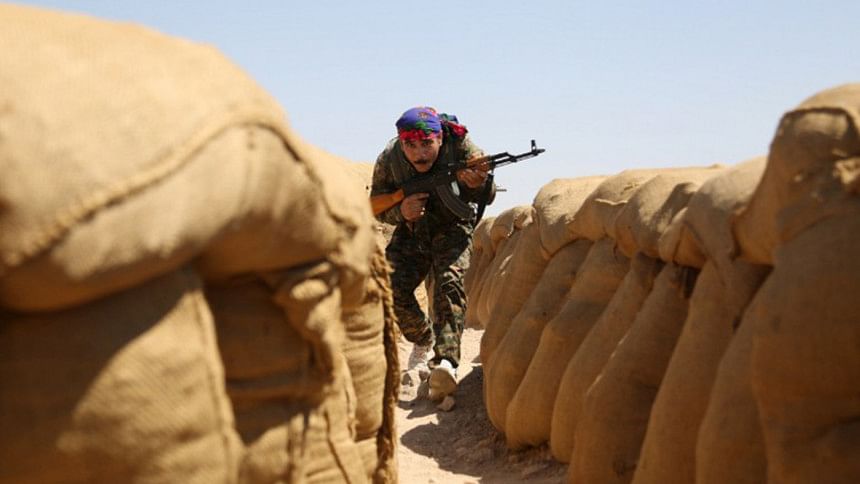Syrian Kurds 'razing entire villages captured from IS'

Kurdish forces have carried out a wave of forced displacement and mass house demolitions - amounting to war crimes - in northern Syria, a rights group says.
A report by Amnesty International accuses the Popular Protection Units (YPG) of razing entire villages after capturing them from Islamic State (IS).
This appeared to be in retaliation for residents' perceived sympathies with or links to the jihadist group, it says.
The YPG is a key ally of the US-led international coalition against IS.
Coalition air strikes, as well as air drops of weapons and ammunition, have helped the militia to drive IS out of large parts of northern Syria this year.
Civilians 'caught in middle'
On Tuesday, Amnesty said its researchers had uncovered evidence of "alarming abuses" carried out by the YPG - the military wing of the Democratic Union Party (PYD) - in towns and villages controlled by the Kurdish Autonomous Administration in Hassakeh and Raqqa provinces.
Its report quoted one witness in the village of Husseiniya, in the Tal Hamis area, as saying: "They pulled us out of our homes and began burning the home... they brought the bulldozers... They demolished home after home until the entire village was destroyed."
Satellite images illustrated the scale of the demolitions in Husseiniya, Amnesty said. They show that of 225 buildings that were visible in June 2014, only 14 were still standing by June 2015.
Meanwhile, in villages south of the town of Suluk, some residents told Amnesty's researchers that YPG fighters had accused them of supporting IS and threatened to shoot them if they did not leave.
While in some cases residents acknowledged that there had been a handful of IS supporters in their villages, the majority did not back the jihadist group, Amnesty concluded.
In other cases, residents alleged that YPG fighters had ordered them to leave, threatening them with air strikes if they failed to comply.
"They told us we had to leave or they would tell the US coalition that we were terrorists and their planes would hit us and our families," one person told Amnesty's researchers.
In one incident, YPG fighters allegedly poured petrol on a house, threatening to set it alight with the inhabitants inside.
Amnesty said the YPG had sought to justify its actions, insisting that they were necessary for the civilians' own protection or militarily necessary.
"In its fight against IS, the Autonomous Administration appears to be trampling all over the rights of civilians who are caught in the middle," Amnesty's senior crisis adviser Lama Fakih warned.

 For all latest news, follow The Daily Star's Google News channel.
For all latest news, follow The Daily Star's Google News channel. 



Comments